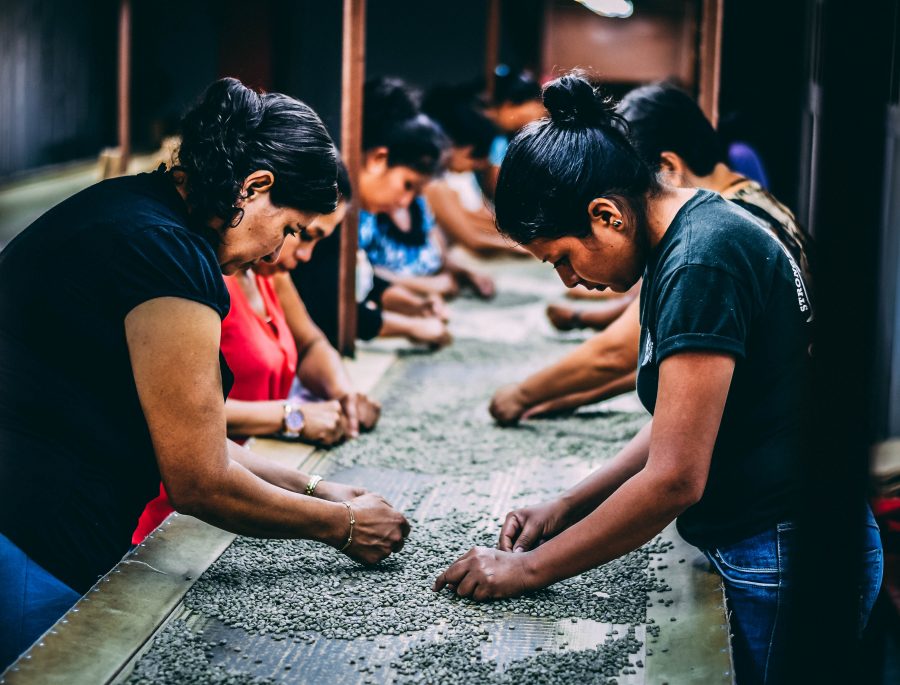The EU EUROsociAL+ Programme supported SISCA, at the initiative of the Central American Social Integration Council (CIS), under the leadership of the Ministry of Social Development of Guatemala, in its capacity as Pro Tempore President of the CIS, in the organisation of the web forum on "Central American Social Integration in the recovery and social rebuilding of the SICA region: reflections in the framework of the Bicentennial of the Independence of Central America".

Foto: Max
With the aim of promoting dialogue on the importance of social integration from a historical perspective, as well as in its current role in the recovery and construction of a new SICA region, the SISCA, at the initiative of the Central American Social Integration Council (CIS), under the leadership of the Ministry of Social Development of Guatemala, in its capacity as Pro Tempore President of the CIS and with the support of the European Union Programme for Social Cohesion in Latin America EUROsociAL+, organised the web forum: Central American Social Integration in the recovery and social reconstruction of the SICA region: reflections in the framework of the Bicentennial of the Independence of Central America.
“It is important to reflect on the importance of the social factor as an indispensable requirement for the recovery and the construction of a better future, the reconstruction of a “collective identity”, for a safe, prosperous, inclusive, democratic and resilient SICA region,” said Axel Palma, Vice Minister of Policy, Planning and Evaluation of the Ministry of Social Development of the Government of the Republic of Guatemala, on behalf of the Pro Tempore President of the CIS
At the event, there was a keynote lecture by Pedro Caldentey del Pozo, Director of the Department of Economics at Loyola Andalucía University and vice president of the board of its Development Institute (ETEA Foundation), who highlighted that social cohesion must be given priority in the new development agenda and be supported by inter-sectoral instruments.
“In the context of the pandemic, instruments of social stability are essential to guarantee that the social achievements that have already been made in Central America are not reverted. Many problems have no borders and can only be solved jointly,” said Kathrin Renner, Officer for Economic Cooperation Projects with the European Union Delegation in Costa Rica.
Prominent as a central element of the forum, were the efforts of the CIS and SISCA in the preparation and approval of the Regional Integral Social Policy of the Central American Integration System, 2020-2040: Integration through Social Inclusion, and the creation of the first instrument for the implementation of said policy, the Plan for the Recovery, Social Reconstruction and Resilience of the SICA region (Plan 3R), which seeks to give an overview of the construction of medium and long-term resilience to face the challenges that the pandemic brought with it, a strategic commitment to the region becoming an area of peace, democracy and sustainable development.
During the forum, the CIS put out a call for action through a Special Declaration issued in the framework of commemorating the Bicentennial of Independence and the social challenges of the SICA region, in which they specifically reiterated their commitment to regional social integration and their full support for the PSIR-SICA and the 3R Plan, as instruments that advocate the alignment of national policies with the definitions and goals agreed at regional level.
“The PSIR-SICA and the 3R Plan sets the course and defines a value-oriented and programmatic timeline that countries can follow, for a recovery that focuses on economic development, environmental sustainability and social cohesion”, explained Francesco Chiodi, Coordinator of the Social Policies Area of the European Union Programme EUROsociAL+.
In order to further explore the central issues that make up the 3R Plan: social protection, employment and employability, informal settlements and sustainable urban development, Israel Ríos, Regional Nutrition Officer of the Sub-regional Office for Mesoamerica at the FAO; Leonardo Ferreira Neves, Director (ad interim) of the ILO Office for Central America, Haiti, Panama and the Dominican Republic; and Elkin Velásquez, UN-Habitat Regional Representative for Latin America and the Caribbean, took part in and developed a discussion on “Opportunities and challenges for development and social cohesion in Central America and the Dominican Republic”.
This forum provided the opportunity to reflect on the challenges for a more equitable, sustainable and resilient recovery and future development of the region, emphasising the need for joint efforts and highlighting SICA’s work carried out from the social area.
Source: SISCA / EUROsociAL+



